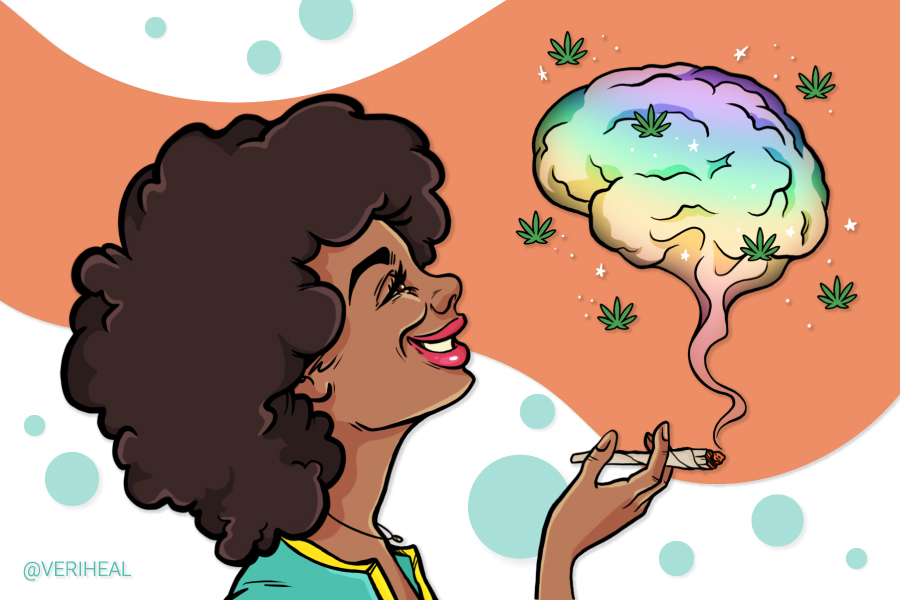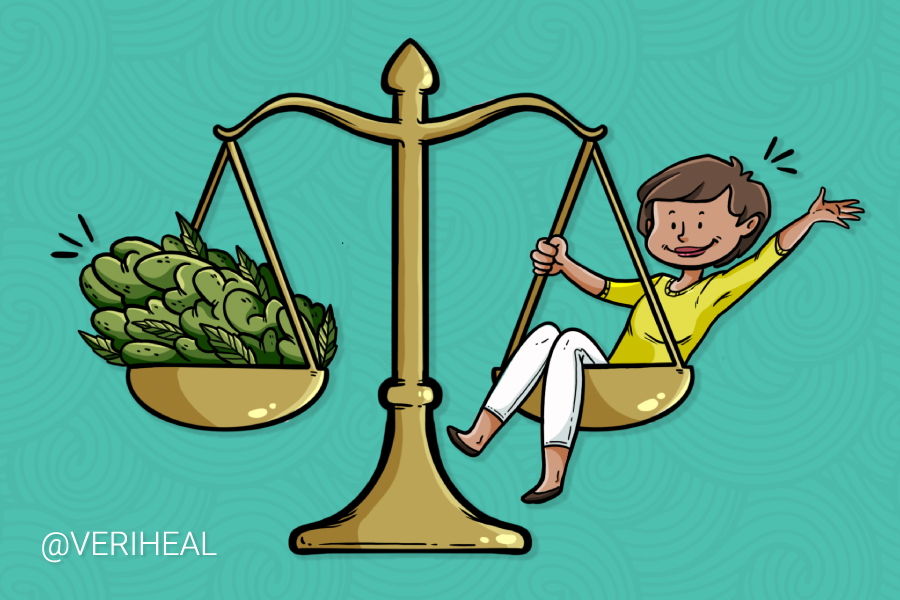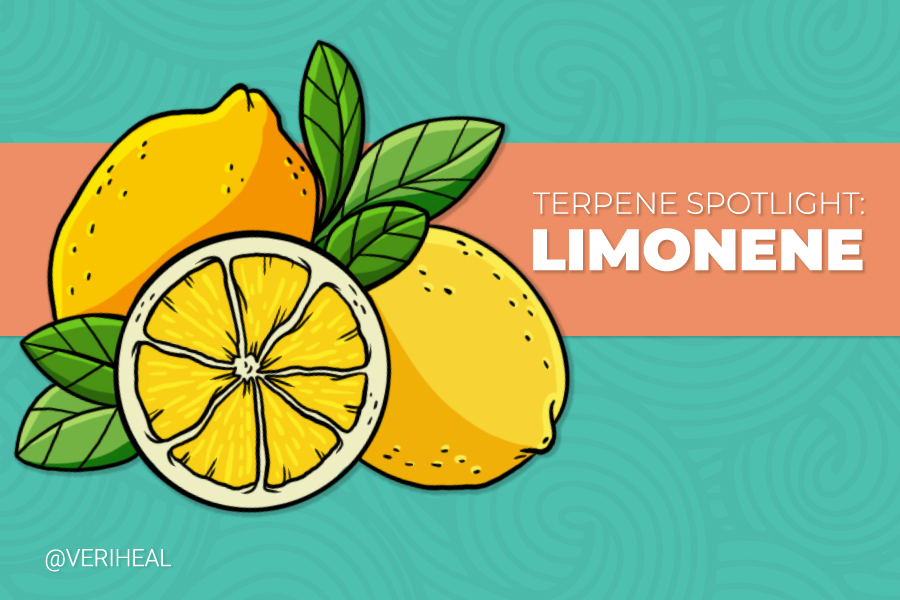Can Medical Marijuana Help Patients Dealing with Vertigo?

Key Takeaways: Medical Cannabis for Vertigo
The potential use of medical cannabis for vertigo is a subject of ongoing research, with some studies suggesting it may offer relief for certain individuals. Vertigo is often associated with inner ear problems or conditions affecting the central nervous system. Some compounds in cannabis, particularly cannabidiol (CBD), have been explored for their anti-inflammatory and neuroprotective properties, which could be relevant in managing vertigo symptoms.
Studies have shown that the endocannabinoid system (ECS), which interacts with compounds in cannabis, plays a role in maintaining balance and regulating the inner ear. This has sparked interest in investigating whether medical cannabis can influence these systems to alleviate vertigo symptoms. However, it’s crucial to note that research in this area is still in its early stages, and more clinical trials are needed to establish the effectiveness, safety, and appropriate dosages for using medical cannabis in treating vertigo.
The Science Behind Medical Cannabis for Vertigo
- Using CBD or THC for Vertigo
- Relieving Vestibular Symptoms with Medical Cannabis
- A Note About Medical Marijuana and Vertigo
- Differences Between Vertigo, Dizziness, and Disequilibrium
- Vertigo Types and Causes
- Vertigo and Medical Cannabis: Patient Experience
Any patient who has experienced vertigo knows how debilitating it can be when your surroundings look like they are moving or spinning around you. There are several causes of vertigo, though this symptom can be hard to diagnose. The delay of diagnosis can be difficult for patients as many of them experience nausea, vomiting, and loss of balance that can last a few seconds or persist for a few days. Vertigo can also be a chronic issue but should be worked up without delay to rule out potentially serious causes.
Vertigo has an extensive relationship with cannabis. Because so many patients report vertigo as a side effect of marijuana use, researchers believe that it has direct effects on the vestibular system in clinically significant ways. However, we do not have research on long-term vestibular function changes it may cause (15).
The portion of the brain responsible for maintaining posture and equilibrium, or balance, is called the vestibular nucleus complex (VNC) (27). These areas are located in the medulla and pons portions of the brain and work together with the cerebellum to help us with perceiving where our head is positioned, how fast it is moving, and modifying muscle tone.
Medical cannabis and its cannabinoids including Δ9-tetrahydrocannabinol (THC) and cannabidiol (CBD) affect our body through the endocannabinoid system (ECS). The ECS consists of fat-based neurotransmitters made in our bodies that can be both increased and decreased by different medications. When medical cannabis activates cannabinoid receptors CB1, and CB2 throughout the body, we experience differences in pain perception, and modulation of a variety of bodily processes including homeostasis (regulation of body temperature), nausea, and more.
Researchers have discovered that there are larger numbers of CB1 receptors in the VNC than previously thought. There are also many CB1 receptors in the cerebellum that work with the VNC, thus it is a potential target for changing the way we experience vertigo in vestibular disorders. Doctors believe that endocannabinoid changes in the VNC might also contribute to vestibular disorders (15).
Using CBD or THC for Vertigo
It is best to see a provider first to work up the possible causes of vertigo – including potentially serious ones like stroke or cancer – without self-diagnosing or self-treating. Though there is not a lot of research on treating vertigo with medical marijuana, researchers believe that it may help treat vertigo symptoms.
A 2016 meta-analysis looking into the use of CBD-rich cannabis extracts and purified CBD product use in patients with treatment-resistant epilepsy found that there is potential in using CBD in patients for reducing dizziness, anxiety, confusion, and vomiting (12). This study involved 117 patients and focused on children, but serves as preliminary evidence that dizziness, anxiety, confusion, and vomiting may be successfully reduced utilizing CBD oil and other CBD products. Studies specifically looking at cannabis or CBD for vertigo are yet to be done.
Relieving Vestibular Symptoms with Medical Cannabis
The ability of cannabis to help treat your vertigo is likely to be dependent on the cause of the symptom in the first place (15). For example, if your vertigo is caused by inflammation of the inner ear, cannabis may help reduce it by modulating the immune system and altering how your body heals inflammation. In addition, cannabis has long been used as an antiemetic, or medication to control nausea.
Research shows that the endocannabinoid system likely has functionality in the VNS in a similar way that the hippocampus and cerebellum cannabinoid receptors are involved in neural plasticity in long-term depression (15). Some doctors theorize that CB1 receptors may control glutamate released by the vestibular nerve, but the effect of this is determined by the location of the receptors and how they release endocannabinoids.
A 1999 case study examining smoking cannabis resin and tobacco along with taking nabilone tablets, and orally taking cannabis oil capsules showed promising results in a patient with multiple sclerosis (MS). This patient also experienced pendular nystagmus, a type of involuntary eye movement, like the movement of a clock pendulum, that causes vertigo (14). The patient experienced relief from pendular nystagmus after smoking cannabis resin, compared to no effect from nabilone and 40mg of cannabis (THC) oil.
The results were confirmed by using an infrared limbus tracker to track changes in eye movement. Vertigo and dizziness, however, were not measured or recorded. This study is just one example of a specific cause of vertigo in a single patient, but it may suggest a potential link to helping patients with motion sickness.
A Note About Medical Marijuana and Vertigo
It is important to keep in mind that vertigo and dizziness can also be side effects of medical cannabis as reported in several placebo-controlled and double-blind studies (15). This has been attributed to THC and its ability to cause cardiovascular effects such as low blood pressure (hypotension) and a heartbeat over 100 beats per minute (tachycardia). For this reason, it is important to talk to your physician if you have existing heart problems and plan on trying medical cannabis. Older individuals should take extra precautions if using it, as adverse effects like dizziness are common and could result in serious falls (1). Therefore, the risks may outweigh the benefits for some individuals.
Many patients choose to use tinctures, oils, edibles or smoking cannabis flowers to improve their medical conditions.
Differences Between Vertigo, Dizziness, and Disequilibrium
Vertigo, dizziness, and disequilibrium are all considered common symptoms with a variety of causes and medical conditions including the common cold, multiple sclerosis (MS), and vestibular neuritis.
The following details how to describe each of these similar symptoms to your healthcare provider in order to get a clear insight into your medical condition:
Dizziness
Dizziness is a sensation that can be described as feeling lightheadedness, faintness, or unsteady. It can result from vestibular dysfunction as well as cardiovascular, neurological, vision, and metabolic problems (5).
Vertigo
Vertigo can be described as similar to dizziness; however, its main defining feature is that it causes the feeling of either you or the room around you is moving or spinning. If you are experiencing frequent episodes of vertigo that can last just a few seconds or for days at a time, this indicates that this symptom may be a primary sign of some sort of vestibular or inner ear dysfunction (5).
Disequilibrium
Disequilibrium is the feeling of being unsteady or unbalanced. It is often accompanied by spatial or visual disorientation (5).
Vertigo Types and Causes
The symptoms of vertigo may be caused by a peripheral vestibular disorder, a dysfunction of the inner ear. They can also be caused by a central vestibular disorder which is when there is a dysfunction of the central nervous system that helps process balance and spatial information (5). Read below for more information about these two major types of vertigo:
Peripheral Vertigo
Peripheral vertigo is caused by issues within the inner ear or a peripheral vestibular disorder. The parts of the inner ear that control balance can also be called the vestibular labyrinth, or semicircular canals (22). This type of vertigo may also result from the vestibular nerve which is between the inner ear and the brainstem. Peripheral vertigo may be caused by (22):
- Benign Paroxysmal Positional Vertigo (BPPV) – this occurs when canaliths, or small pieces of bone-like calcium, break free in the semicircular canals of the inner ear, causing your body to sense movement incorrectly (20).
- Certain types of medications including aminoglycoside antibiotics, Cisplatin, diuretics, or salicylates, are toxic to the inner ear labyrinth.
- Head injuries including concussions and other traumatic brain injuries.
- Neuronitis, or inflammation of the vestibular nerve
- Labyrinthitis, or irritation and swelling of the inner ear
- Pressure on the vestibular ear, usually caused by tumors such as a meningioma or schwannoma
- Meniere’s disease – an inner ear disorder that affects balance and hearing. Its symptoms include hearing loss that changes, pressure in the ear, tinnitus, and vertigo (21).
Central Vertigo
Central vertigo or central vestibular disorders are usually caused by problems in the brainstem or the cerebellum which is the back portion of the brain (22). This type of vertigo can be caused by the following (22):
- Blood vessel disease
- Medications such as anticonvulsants (seizure medications), aspirin, and alcohol
- Multiple Sclerosis (MS)
- Rarely by seizures
- Stroke
- Cancerous or noncancerous tumors
- Vestibular migraines – are migraines that include vestibular dysfunction systems, including dizziness, vertigo, photosensitivity of the eyes, sound sensitivity, tinnitus, and loss of balance (23).
Vertigo and Medical Cannabis: Patient Experience
A 2019 case study focusing on an 88-year-old female and her use of cannabis for help treating her generalized anxiety disorder and vertigo shows some interesting results (24). She experienced ‘wonky days’ that consisted of intense dizziness, extreme nausea, imbalance, and anxiety about these worsening symptoms. She also experienced both vertigo and anxiety for at least two years.
After being set up with a clinical protocol to reduce her symptoms, the frequency of her vertigo attacks was reduced to only having symptoms once or twice a week. During the case study, the patient reported that she was using 2 mL of cannabis oil made from OG Kush (24). Once the patient was using the cannabis oil, the patient’s symptoms stopped and she was able to maintain symptom relief for a period of at least two weeks. By the tenth week of the case study, the patient reported significant improvements in quality of life and the ‘wonky days’ had not recurred. At week 15, she was unable to obtain more cannabis oil and the vertigo symptoms returned.
Note: Veriheal does not intend to give this as professional medical advice. Do not attempt to self-diagnose or prescribe treatment based on the information provided on this page. Always consult a physician before making any decision on the treatment of a medical condition.
1. Abuhasira, R., Ron, A., Sikorin, I., & Novack, V. (2019). Medical Cannabis for Older Patients-Treatment Protocol and Initial Results. Journal of clinical medicine, 8(11), 1819. https://www.ncbi.nlm.nih.gov/pmc/articles/PMC6912698/
2. Baek, J.-H., Zheng, Y., Darlington, C. L., & Smith, P. F. (2008). Cannabinoid cb2receptor expression in the rat brainstem cochlear and vestibular nuclei. Acta Oto-Laryngologica, 128(9), 961–967. https://www.tandfonline.com/doi/abs/10.1080/00016480701796944
3. Bhattacharyya, N., Gubbels, S. P., Schwartz, S. R., Edlow, J. A., El-Kashlan, H., Fife, T., Holmberg, J. M., Mahoney, K., Hollingsworth, D. B., Roberts, R., Seidman, M. D., Steiner, R. W., Do, B. T., Voelker, C. C., Waguespack, R. W., & Corrigan, M. D. (2017). Clinical Practice Guideline: Benign Paroxysmal Positional Vertigo (Update). Otolaryngology–head and neck surgery: official journal of American Academy of Otolaryngology-Head and Neck Surgery, 156(3_suppl), S1–S47. https://pubmed.ncbi.nlm.nih.gov/28248609/
4. Booth, S. (n.d.). Vestibular disorders: Symptoms, causes and treatments. Vestibular Disorder Facts. https://www.webmd.com/brain/vestibular-disorders-facts
5. Causes of dizziness. VeDA. (2021, May 21). https://vestibular.org/article/what-is-vestibular/causes-of-dizziness/
6. Choukèr, A., Kaufmann, I., Kreth, S., Hauer, D., Feuerecker, M., Thieme, D., Vogeser, M., Thiel, M., & Schelling, G. (2010). Motion sickness, stress and the endocannabinoid system. PloS one, 5(5), e10752. https://www.ncbi.nlm.nih.gov/pmc/articles/PMC2873996/
7. Golding, J. F., & Gresty, M. A. (2015). Pathophysiology and treatment of motion sickness. Current opinion in neurology, 28(1), 83–88. https://pubmed.ncbi.nlm.nih.gov/25502048/
8. Health Canada. (2018, October 12). Government of Canada. For health care professionals: Cannabis and cannabinoids – Canada.ca. https://www.canada.ca/en/health-canada/services/drugs-medication/cannabis/information-medical-practitioners/information-health-care-professionals-cannabis-cannabinoids.html
9. Horowitz, S. (1999). Homeopathic and other treatments for vertigo and dizziness. Alternative and Complementary Therapies, 5(2), 74–78. https://www.liebertpub.com/doi/10.1089/act.1999.5.74
10. Hussain, S. A., Zhou, R., Jacobson, C., Weng, J., Cheng, E., Lay, J., Hung, P., Lerner, J. T., & Sankar, R. (2015). Perceived efficacy of cannabidiol-enriched cannabis extracts for treatment of pediatric epilepsy: A potential role for infantile spasms and Lennox-Gastaut syndrome. Epilepsy & behavior : E&B, 47, 138–141. https://pubmed.ncbi.nlm.nih.gov/25935511/
11. Lindeman, S. (2020, November 20). Can CBD treat VERTIGO? – AUGUST 2021. CBD Clinicals. https://cbdclinicals.com/cbd-for-vertigo/
12. Pamplona, F. A., da Silva, L. R., & Coan, A. C. (2018). Potential Clinical Benefits of CBD-Rich Cannabis Extracts Over Purified CBD in Treatment-Resistant Epilepsy: Observational Data Meta-analysis. Frontiers in neurology, 9, 759. https://www.ncbi.nlm.nih.gov/pmc/articles/PMC6143706/
13. Perin, P., Mabou Tagne, A., Enrico, P., Marino, F., Cosentino, M., Pizzala, R., & Boselli, C. (2020). Cannabinoids, inner Ear, hearing, And Tinnitus: A Neuroimmunological Perspective. Frontiers in Neurology, 11. https://www.frontiersin.org/articles/10.3389/fneur.2020.505995/full
14. Schon, F., Hart, P. E., Hodgson, T. L., Pambakian, A. L., Ruprah, M., Williamson, E. M., & Kennard, C. (1999). Suppression of pendular nystagmus by smoking cannabis in a patient with multiple sclerosis. Neurology, 53(9), 2209–2209. https://n.neurology.org/content/53/9/2209.2.full
15. Smith, P. F., Ashton, J. C., & Darlington, C. L. (2006). The endocannabinoid system: A new player in the NEUROCHEMICAL control OF vestibular Function? Audiology and Neurotology, 11(4), 207–212. https://www.karger.com/Article/FullText/92588
16. Soto, E., & Vega, R. (2010). Neuropharmacology of vestibular system disorders. Current Neuropharmacology, 8(1), 26–40. https://www.ingentaconnect.com/content/ben/cn/2010/00000008/00000001/art0000
17. Timothy C. Hain, M. D. (2021, March 10). Cannabis (marijuana) for dizziness, nausea or headache. Cannabis for dizziness, nausea and headache. https://dizziness-and-balance.com/treatment/drug/cannabis.html
18. Types of vestibular disorders. VeDA. (2021, May 26). https://vestibular.org/article/diagnosis-treatment/types-of-vestibular-disorders/
19. U.S. National Library of Medicine. (2021, June 2). Dizziness | vertigo. MedlinePlus. https://medlineplus.gov/dizzinessandvertigo.html
20. U.S. National Library of Medicine. (n.d.). Benign positional vertigo: Medlineplus medical encyclopedia. MedlinePlus. https://medlineplus.gov/ency/article/001420.htm
21. U.S. National Library of Medicine. (n.d.). Ménière disease: Medlineplus medical encyclopedia. MedlinePlus. https://medlineplus.gov/ency/article/000702.htm
22. U.S. National Library of Medicine. (n.d.). Vertigo-associated disorders: Medlineplus medical encyclopedia. MedlinePlus. https://medlineplus.gov/ency/article/001432.htm
23. Vestibular migraine. VeDA. (2021, May 26). https://vestibular.org/article/diagnosis-treatment/types-of-vestibular-disorders/vestibular-migraine/
24. Walkaden C. (2019). A case study for the use of medical cannabis in generalized anxiety disorder. Discoveries (Craiova, Romania), 7(2), e92. https://www.ncbi.nlm.nih.gov/pmc/articles/PMC7086060/
25. Whiting, P. F., Wolff, R. F., Deshpande, S., Di Nisio, M., Duffy, S., Hernandez, A. V., Keurentjes, J. C., Lang, S., Misso, K., Ryder, S., Schmidlkofer, S., Westwood, M., & Kleijnen, J. (2015). Cannabinoids for medical use. JAMA, 313(24), 2456. https://jamanetwork.com/journals/jama/fullarticle/2338251
26. Zheng, Y., Wang, X.-L., Mo, F.-F., & Li, M. (2014). Dexamethasone alleviates motion sickness in rats in part by enhancing the endocannabinoid system. European Journal of Pharmacology, 727, 99–105. https://www.sciencedirect.com/science/article/abs/pii/S0014299914000776
27. Merchant R.E. (2011) Vestibular Nuclei. In: Kreutzer J.S., DeLuca J., Caplan B. (eds) Encyclopedia of Clinical Neuropsychology. Springer, New York, NY. https://link.springer.com/referenceworkentry/10.1007%2F978-0-387-79948-3_376

















